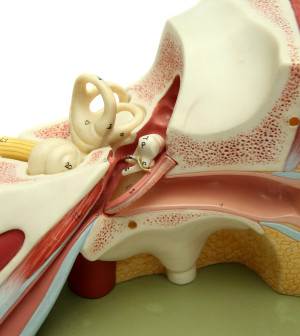- Could Your Grocery Store Meat Be Causing Recurring UTIs?
- Are You Making This Expensive Thermostat Error This Winter?
- Recognizing the Signs of Hypothyroidism
- 10 Strategies to Overcome Insomnia
- Could Artificial Sweeteners Be Aging the Brain Faster?
- Techniques for Soothing Your Nervous System
- Does the Water in Your House Smell Funny? Here’s Why
- Can a Daily Dose of Apple Cider Vinegar Actually Aid Weight Loss?
- 6 Health Beverages That Can Actually Spike Your Blood Sugar
- Treatment Options for Social Anxiety Disorder
Psychiatric Patients Face Longer Waits in ER

Patients seeking help for mental health problems wait hours longer in the emergency department than other patients do, a new study finds.
People with mental health problems are also six times more likely to be transferred to another facility instead of receiving treatment at the hospital, the researchers added.
“Previous research shows that patients in the ER often experience lengthy wait times, but our new study shows that psychiatric patients wait disproportionately longer than other patients — sometimes for several hours — only to ultimately be discharged or transferred elsewhere,” said study author Dr. Jane Zhu.
Zhu is with the University of Pennsylvania Perelman School of Medicine.
The study included data from more than 200,000 ER visits in the United States. The visits occurred between 2002 and 2011.
The average length of ER stay for psychiatric patients admitted for observation was longer than for non-psychiatric patients: 355 minutes vs. 279 minutes. This was also true for people being transferred to other facilities: 312 minutes for psychiatric patients vs. 195 minutes for non-psychiatric patients.
For those discharged, the difference wasn’t as large. Psychiatric patients waited 189 minutes. Other patients waited 144 minutes, the study authors reported.
For patients eventually admitted to the hospital, the average length of stay in the ER for psychiatric patients wasn’t much different from non-psychiatric patients. But only 18 percent of psychiatric patients were in this category, the researchers found.
During the study period, the annual number of adult emergency room visits rose by 30 percent in the United States. Psychiatric ER visits increased much more, by about 55 percent. Alcohol-related disorders made up a growing percentage of psychiatric ER visits, the study revealed.
Cutbacks at state and county mental health hospitals have forced more psychiatric patients to seek treatment in emergency rooms, the study authors said.
“Overall, the study highlights the degree to which emergency departments struggle to meet the needs of mental health patients,” Zhu said in a university news release.
The study appears in the September issue of the journal Health Affairs.
More information
The National Alliance on Mental Illness has more on mental illness treatment.
Source: HealthDay
Copyright © 2026 HealthDay. All rights reserved.










